Zella Day Returns at Last
Fresh off the release of her new album Sunday in Heaven, the artist sits down with V to discuss her evolution as a songwriter and the years-long journey behind her most recent creation.
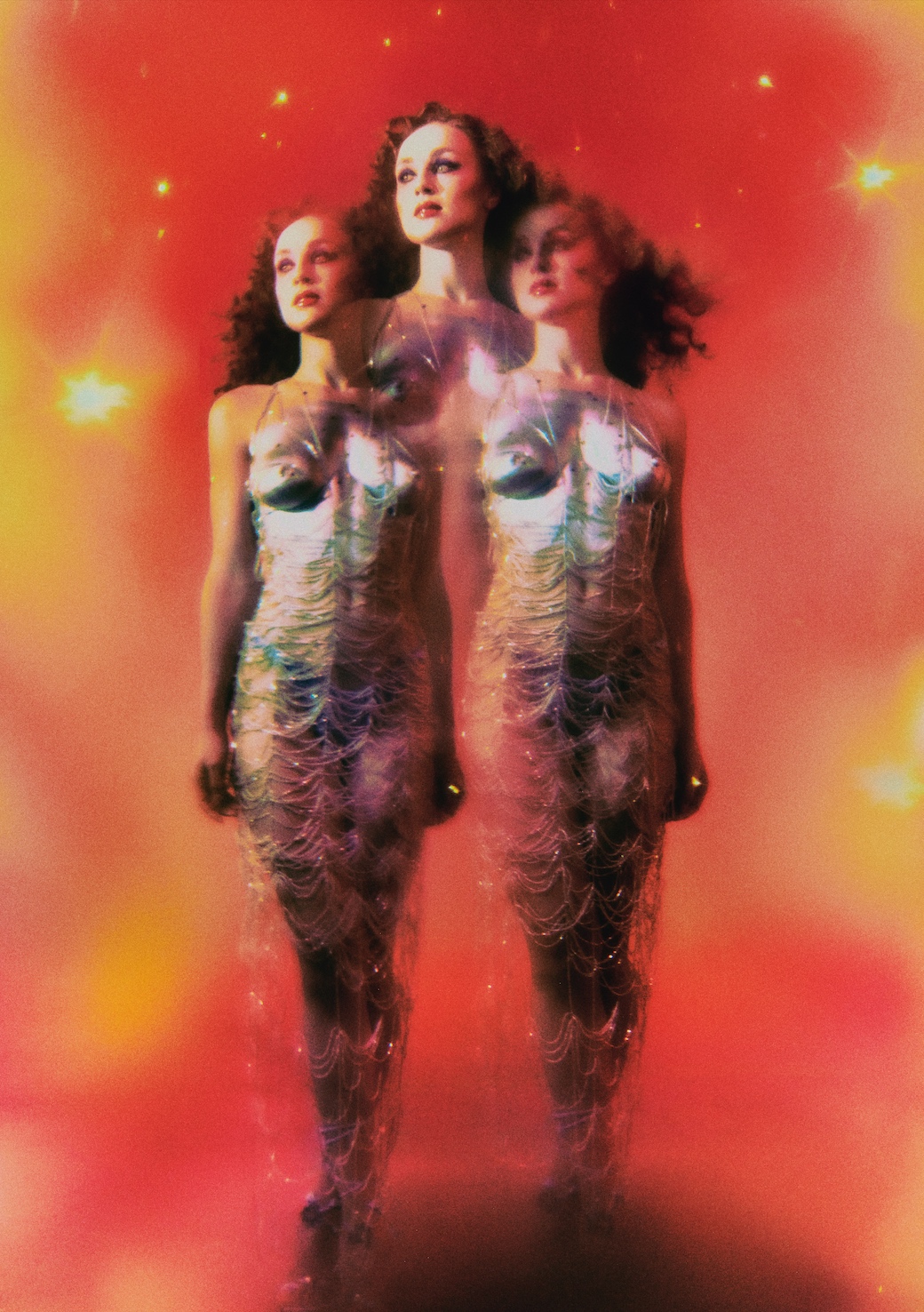
Having released her first album Kicker at just 18-years-old, Arizona-born singer-songwriter Zella Day is no stranger to music and its ever-present challenges. When Kicker was recorded seven years ago, that challenge was appealing to Top 40 charts and making an impression with her first major label. Now, it’s getting the music out all. In 2020, Zella recorded her highly anticipated sophomore album Sunday in Heaven. Postponed due to Covid—aside from a few tracks she previewed as singles—the album never saw the light of day. Until now.
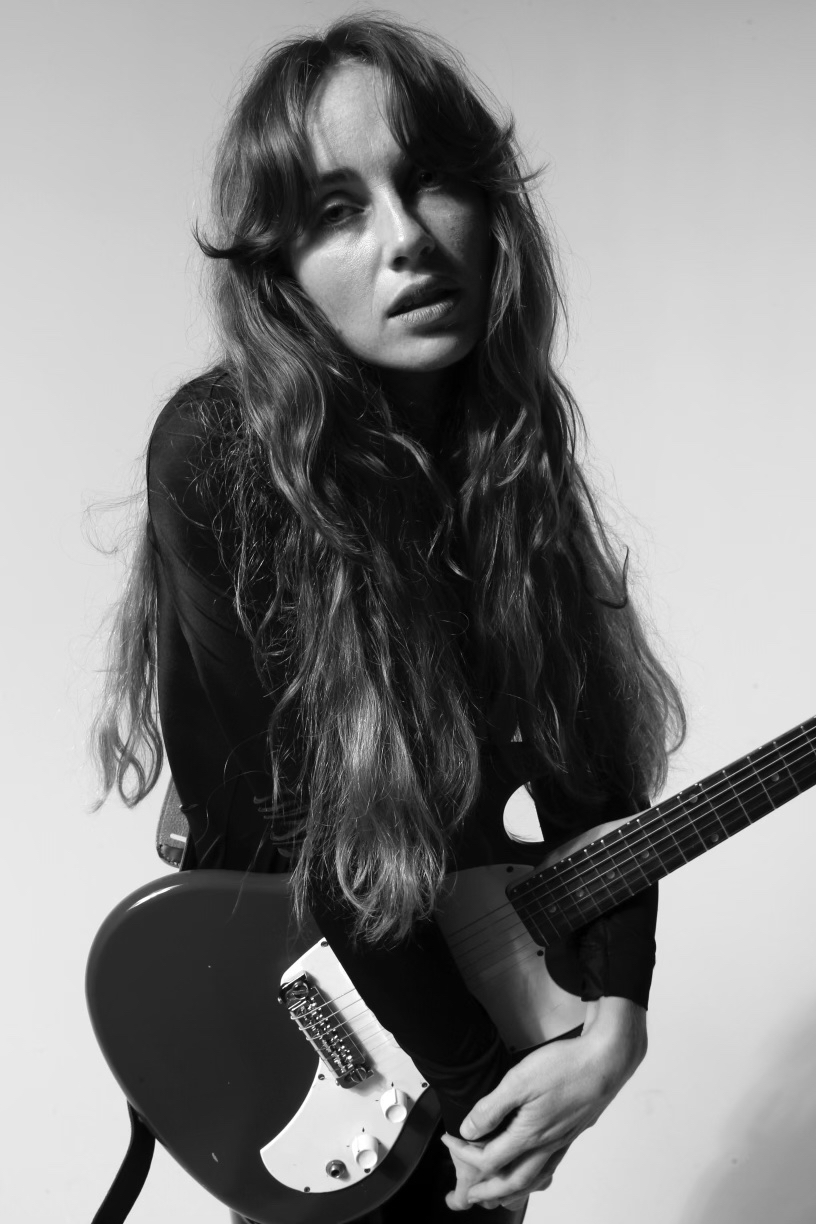
Seven years since Kicker and millions of streams later, Sunday in Heaven is finally here. A genre-bending diary that chronicles years across sun-flooded California, its’ twelve tracks flow from ambient 70s-inspired “Golden”—released last year with “Dance for Love” and “Girls”, also featured on the album—to the record’s recent frontrunner “Mushroom Punch”, a union of wistful psychedelia threaded with pop-infused sonics. Complete with the pro-choice catharsis “Radio Silence” and ethereal poetry of “Sunday in Heaven”, Zella delivers a medley of her life in song—a long awaited new chapter she can finally take to the stage.
“Some of my best work has happened over time,” says Zella, whose songs come together like puzzle pieces. Between fragmented melodies and city references she collects and stores for years, songwriting is a process she rarely does from scratch. By holding onto themes and memories, like “Mushroom Punch”’s Lizard Acres—a rest stop she noted while on tour five years ago—she pulls visuals from every division of place and time, bringing them with her from her songs to the screen.
“I’ve really been enjoying making music videos over the past three years,” the artist shares, exploring the bounds of her artistry from the iPhone-shot “Radio Silence” to Sophie Muller-directed “Mushroom Punch”. For the latter, an airplane carry on was all she needed—one outfit for 20 hours of shooting in the lush British countryside. “It was important to me that [the video] featured emotion, and that there wasn’t anything in between me and the camera. No tricks going on—I did my own hair, no makeup,” she recalls. “I find that through my songwriting, the lyrics and storytelling are as relevant as ever. What changes is the way that I’m performing them.”
Keep reading for our chat with Zella Day as she talks the origin of Sunday in Heaven, her songwriting process, and more.
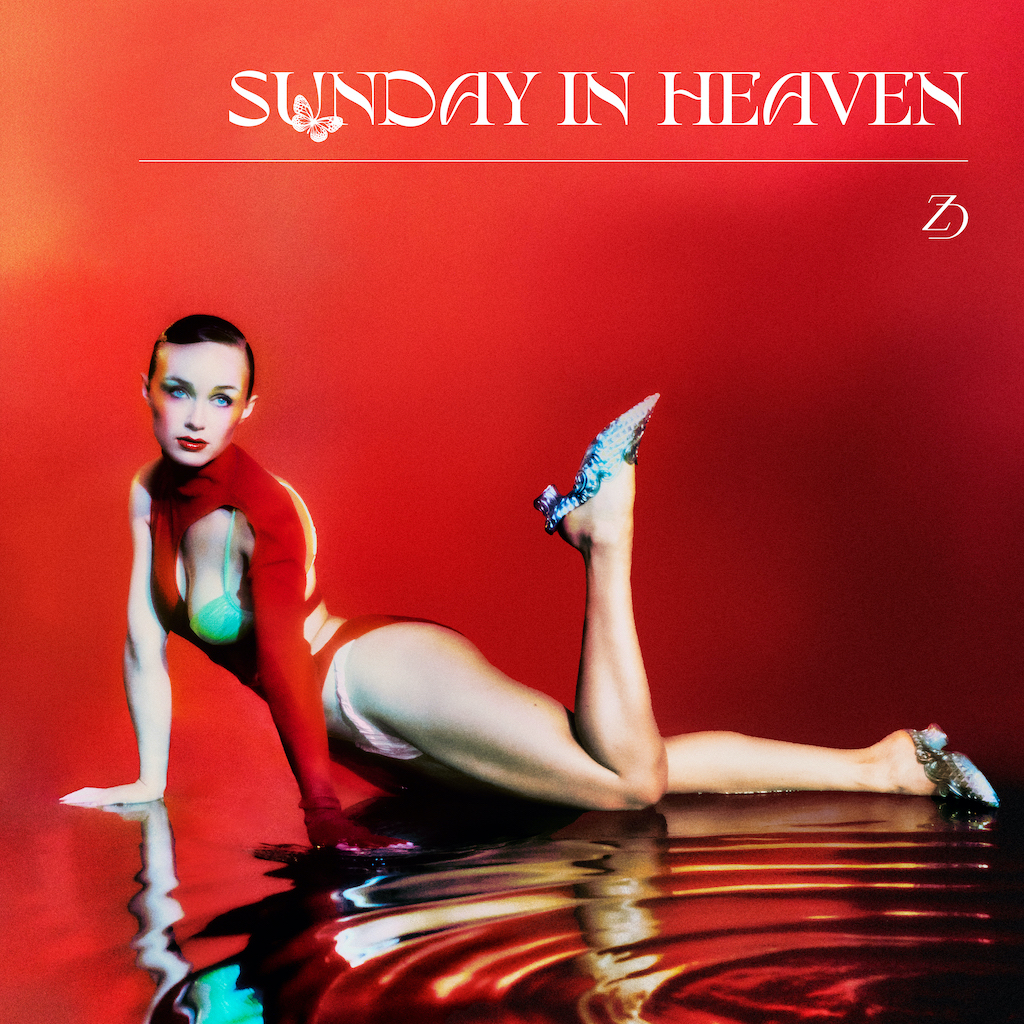
V MAGAZINE: Congratulations on the album! This release has been a long time coming. What are some emotions going through right now?
ZELLA DAY: The whole lead up to the announcement of the record has been emotional. It’s been two years since I recorded it thought I’d be releasing it last year. Covid put a halt to everything and everyone, so I’ve had to do my best to maintain my mental stability while and managing to communicate to my fans that it is coming. Sometimes it’s this long, grueling process that takes much longer than you anticipate.
V: Is that why we got “Dance for Love”, “Golden”, and other singles last year?
ZD: Yeah, those singles were starting to drop last year in anticipation for the release of the record, then the record got pushed. It’s been this gestation period that finished so long ago. This happens a lot with many artists I know, where you write music a couple years preceding the record actually coming out. Then you have to fall in love and reengage with the material that you wrote again, because as an artist, you’re already on to the next thing. I guess my emotion would be relieved, and satisfied with what I’ve created—that still feels relevant. It’s nice. That means that I made music that’s growing with me already, before it’s released, because I’ve already been living with it. Because of that, I have a very different relationship with it than the audience does.
V: Is that ever a struggle? Having the music still feel relevant to your current life when you wrote and recorded it so long ago?
ZD: Storytelling is a talent that I hope is being translated through the music. I find that through my songwriting, the lyrics and storytelling are as relevant as ever. What changes is the way that I’m performing them. There’s always a way to revisit your old material and make it new again. I wouldn’t say I’m somebody that gets bored with music that I’ve written in the past. Feeling like I’ve outgrown it, yes, because I’ve been writing music for such a long time. But as far as this record goes, I feel really excited to be able to finally get out there and play it in its entirety. That’s a whole different space.
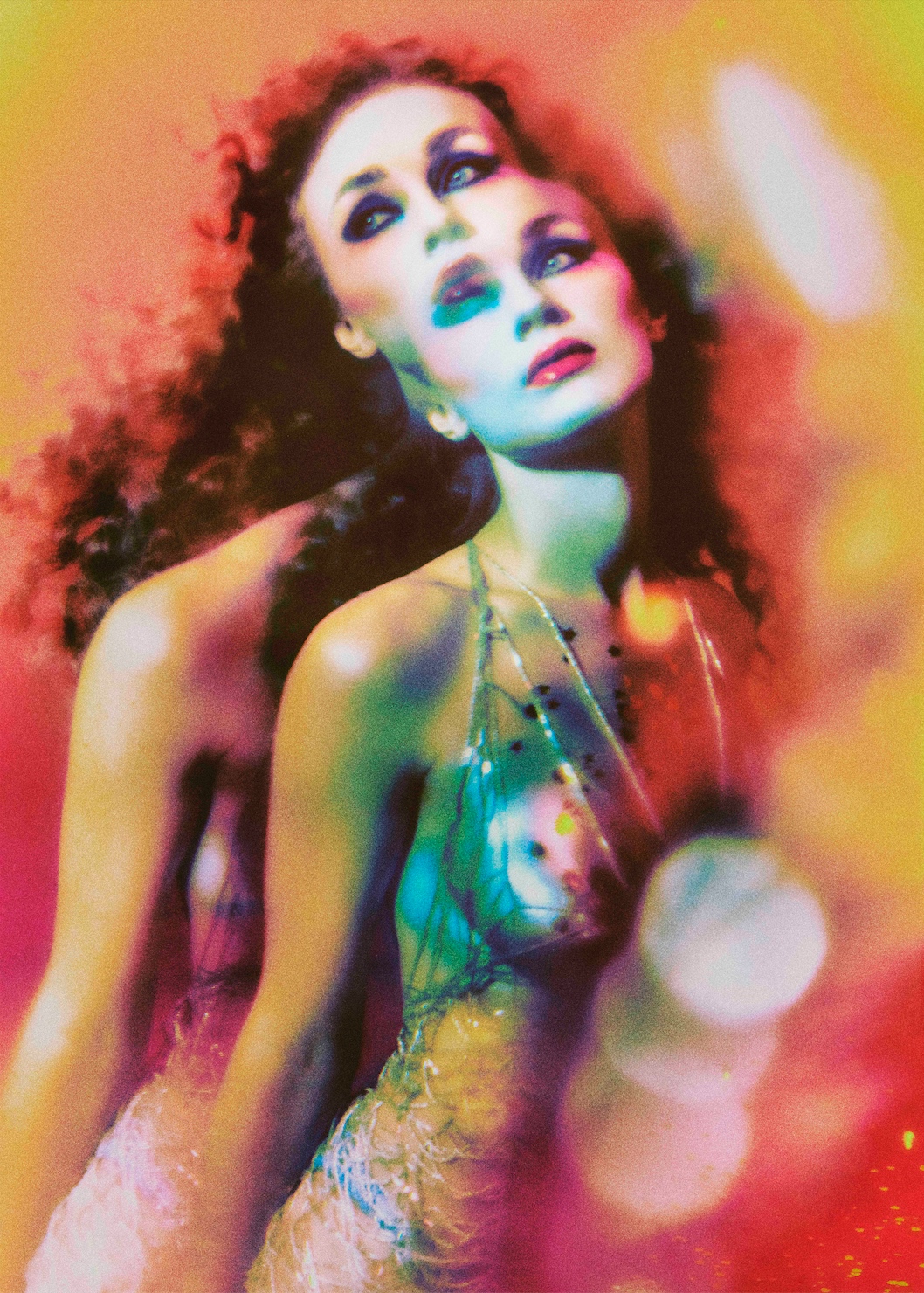
V: That’s great. So, our first real preview of this album was “Mushroom Punch” which came out in August. What about that song made you decide it should be the first to be released?
ZD: “Mushroom Punch” is genre bending and is also a favorite within my inner circles. I have different relationships with all the songs, but it just seemed like a standout track. At the time that it was written, I was really fascinated by infusing psychedelia into a pop format, and “Mushroom Punch” does that. I’ve done it before in other forms—”Man on the Moon” was like that. “Mushroom Punch” exists in that world, where I imagine myself opening up for The Flaming Lips or something.
V: It definitely does, as does the music video with that same psychedelia in a visual form. How would you describe the roots of that theme? Is it more literal or metaphoric?
ZD: It’s both. Me and the director, Sophie Muller, talked a lot about the scene from The Wolf of Wall Street where Leo is crawling downstairs and he’s comatose, and how interesting that perspective is as a viewer. You’re watching the actor go through this spectrum of an experience, but you can’t see what they’re seeing. That was really the perspective that we wanted to shoot from, was to make the viewer be more curious because it’s not clear what’s going on inside my brain. It’s metaphorical and experiential and personal, all at the same time.
V: That’s great. How does that tie into the personal inspiration for the song?
ZD: “Mushroom Punch” is referential to a couple of places that I’ve visited that I penned down in my notebook while on tour five years ago. Lizard Acres is a rest stop we stopped on during my European tour and it was always a visual I felt was really strong and that I wanted to put into a song. It’s really about the games we play on ourselves whilst being in love, and how it’s kind of a psychedelic trip. Sometimes you can be experiencing something that the other person is not experiencing.
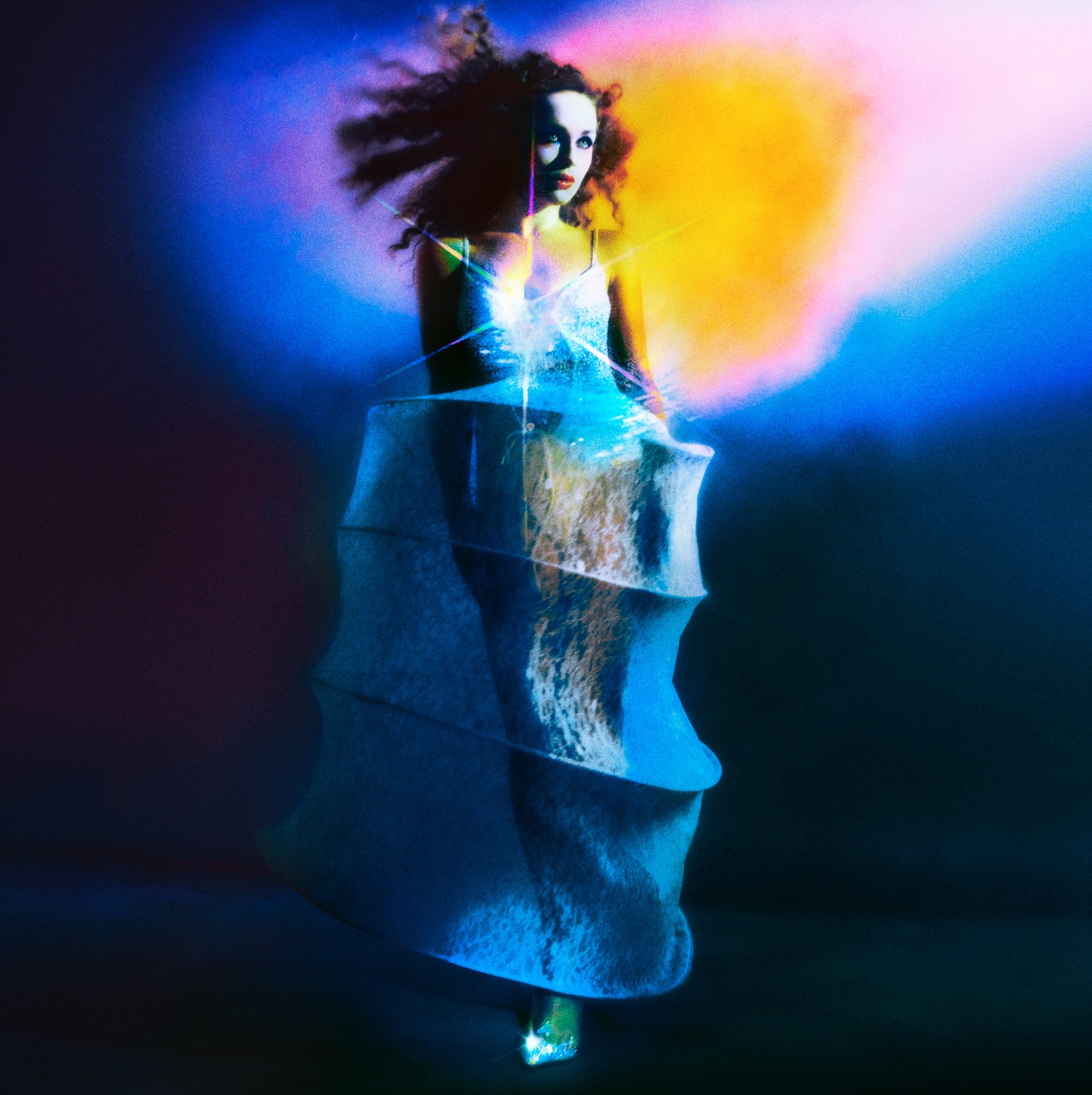
V: I love that. I read an interview you did back in 2020 where you’re talking about the video for “Only a Dream” that I wonder if applies here too. You said, “Sometimes it’s hard for me to come up with visuals when I feel too attached to the music.” I imagine that’s difficult. What’s it like translating one creative medium to another?
ZD: It varies from song to song and project to project, and what kind of team I have to collaborate with. I just did a music video for “Radio Silence” a couple of months back that I shot on iPhone with my friend Alex Casnoff. We shot it in a night. It was just the two of us and his girlfriend and we drove around the city which felt appropriate because the song talks about the valley. It was this obvious nod to Los Angeles. Then you have “Mushroom Punch” that I’ve had within my possession for so long now that I’ve been saving images. When it was time to get on the phone with Sophie, it was already clear what we wanted to do. Sophie has this incredible instinct for storytelling and being able to translate my ideas not just as a musician but also as a visual artist. I’ve really been enjoying making music videos over the past three years. I had my first role in an independent film at the top of this year, so acting and getting into character has been something I’ve been really enthralled by. The “Mushroom Punch” video is definitely an extension of that new skill that I’ve been refining over the past couple of years, so it was important to me that it featured emotion and that there wasn’t anything in between me and the camera. No tricks going on, I did my own hair. No makeup. I packed a carry on to London with just my outfit in it. Really simple and basic, then giving myself to the experience. Usually, I don’t get to do that fully, because I’m very involved in codirecting and creative directing my videos. This was the first time that I handed over the bulk of the creative responsibility. To be able to work with somebody at Sophie’s caliber was an absolute privilege and an honor. I fully leaned in and just got to be an entertainer. It’s so fun to wear one hat instead of 10.
V: I bet. Did filming “Mushroom Room” feel as cathartic as it looks in the video?
ZD: Yeah. It was two 10-hour days, so 20 hours of shooting. We were up every day with the sun and shooting till the sun went down. I always imagined the camera as sucking out pieces of energy from my face. That’s how it should be. At the end you’re tired, you look exhausted, there’s nothing that makeup can fix. But it was really cathartic. I feel like I’m at my best when I’m fully committed to a performance, so it is cathartic. It’s a sacred thing that happens between a team of people when they’re creating a different entity altogether.
V: That’s great. Moving onto your creative process for the rest of the album, what does your writing process look like?
ZD: All different. I play guitar so I have so many melodies saved on my phone—bits and pieces of lines and song titles. Sometimes they come together like Frankenstein puzzles. Other times I’ll sit down, and it’ll all come out at once. I’ve found that my songwriting patterns have changed since I’ve gotten older; I take more time with it and don’t pressure myself to finish one in one sitting. Some of my best work has happened over time, as an aging process. The lyrics that I’m most proud of are the ones that I’ve really ruminated on. And having some lyrics that are temporary and changing them later after really giving myself some space. I’m learning, in between records, that it’s really important to give yourself a period of time where you’re not writing music at all. Give yourself a break, and then to start slowly go to work. There’s a lot of different ways you can apply yourself.
V: So, the lyrics and the melody, it all evolves together?
ZD: It happens together, or I have melodies that don’t have words. I have melodies where the words are gibberish. Sometimes you sing the gibberish over and over until they turn into words, and all of a sudden you have a chorus. I actually run into this problem a lot, where you have a really good first line and it’s intimidating because everything has to follow that first line. You’re like, “Fuck, does everything has to be that good?” You have to not freak yourself out. But yeah, sometimes they happen at the same time, and sometimes not at all.
V: How do you know when the songs are done?
ZD: You don’t. Sometimes I take cues from people outside myself who I really trust and confide in for these things, but they’re never really done. You hear a lot of artists say the same thing. When you’re listening back to your record, it can be prickly and a little painful because you know which things you would have done differently. At a certain point you just have to let it go. I think songwriting can be really self-indulgent, and I try to remove myself from the indulgence once I feel like everything that needs to be said has been said.
V: Of those people you trust to listen, who is the first to hear what you’re working on?
ZD: My mother, since the very beginning and still. I have an extroverted personality so once I finish something, I want to show somebody. She was always the person growing up that I would do that with, it was this open exchange of what I was writing, and she was able to talk to me about it. Sometimes I’d get really frustrated because she wouldn’t say the exact thing that I wanted her to say or that I was expecting her to say, and I’ve caught myself doing the same thing with my boyfriend. I’ve had to understand that it’s not fair to show people things that aren’t finished and expect them to have a sense of where you’re going, or what the finished result is going to look like. I’m trying to practice a more internalized way of writing and keeping things to myself more. It’s almost like a Polaroid, where you have to turn it over so that nothing can reach it. That’s when the colors are going to be the deepest and the most saturated. It’s important to give yourself that time to decide what you think without any outer influence reaching your psyche.
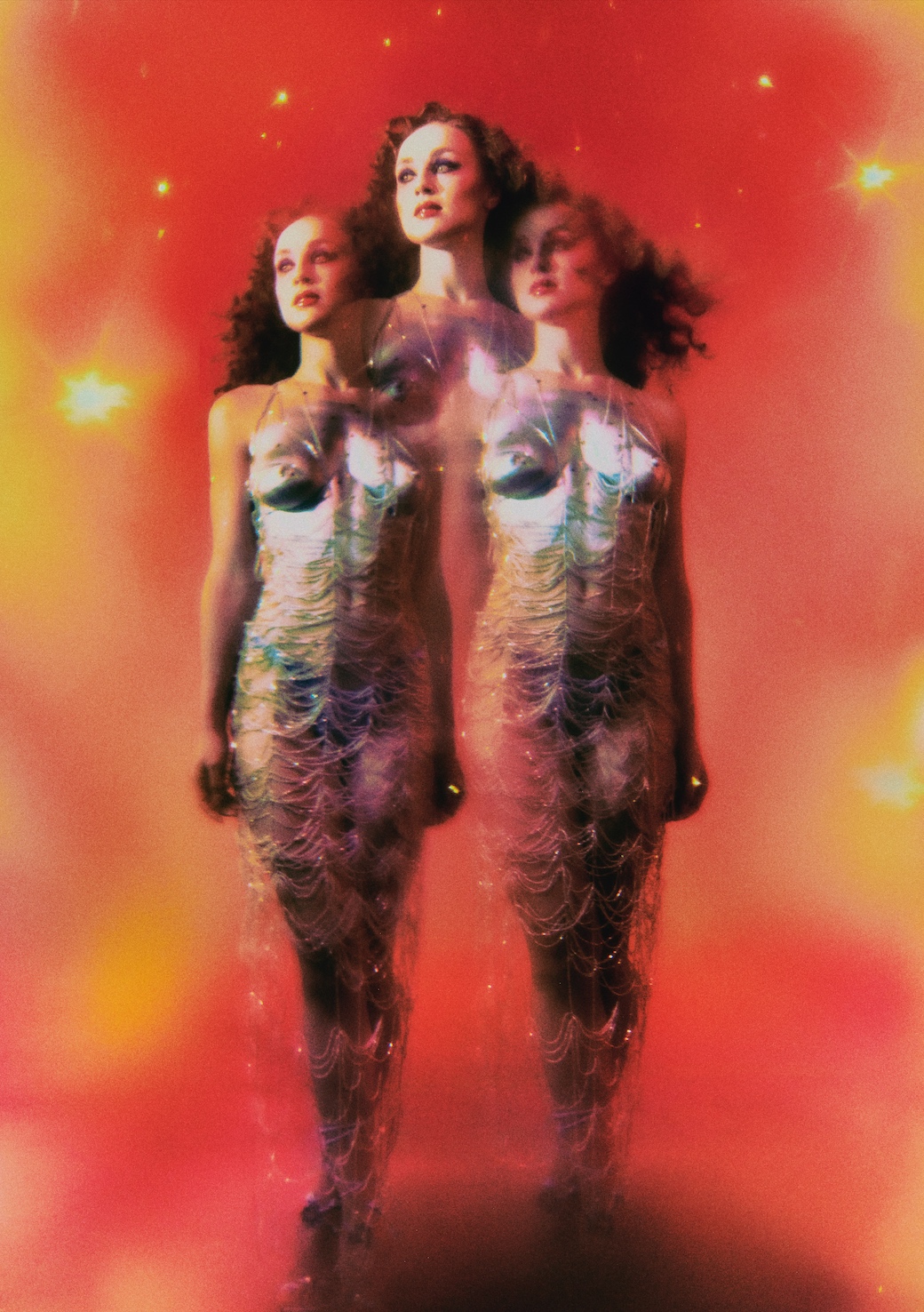
V: How does it feel showing someone a finished song when they haven’t been a part of the process? Is it nerve-racking?
ZD: I had to abandon the nerves of showing people what I make years ago. When you get into the music business and you have a team of people listening to your demos, you have to check everything personal. You might think it’s great for a million reasons, but everyone has an opinion. I have never asked somebody what they think about a song, and they haven’t given me an opinion. Everyone wants to project their own feelings and thoughts and ideas onto art, that’s what it’s for. It literally is so that people can relate and be introspective about the way that they see themselves in the song. I’ve tried to stop telling people what the songs are about, because I find that it’s more disappointing than it is constructive—Ruining people’s idealized sense of what the story is about. You don’t want to do that, it’s like telling a kid that Santa Claus isn’t real.
V: Makes sense, that’s also the beauty of it. So, as the rest of the album goes, are we seeing the same themes or does everything pull from different places?
ZD: They’re pulling from so many different places. I’m eclectic as a person, so I don’t conform to one style. People have told me that music on the record sounds cohesive, and so does the imagery, and every time I hear that, I’m like, “Thank God” because that’s the last thing I feel that it is. Conceptual albums are cool, and I definitely have one of those in my future, but for now it’s been a lot of transformation, a lot of growing and changing. I’ve gotten through my 20s almost, and this record was written through a lot of that. The record definitely reflects the places I’ve been and the people I’ve met, and the shadows and the sunshine and the California. Really being able to really embody that time.
V: How would you say it differs from writing and recording Kicker? In the seven years since that album, how have your own personal changes affected the process?
ZD: I was 17 when I started writing the songs for Kicker, and that record came with a record deal. I had never released a record on a major label, so everything I was experiencing was for the first time. Looking back, there were a lot of very supportive first experiences. Then there were some first experiences that were not very supportive of my career as an artist, the immediacy of trying to appeal to Top 40 or trying to do something as big as you can. That’s been the biggest difference in approach, and writing Sunday in Heaven is a reprieve from all that. Most of the music was written in my kitchen, by myself, and with my friends. The stakes weren’t as high, and it was a quieter time. It felt like the curtains closed and I went home, and then I didn’t have any more shows for the next four years. I got to reclaim my relationship to my songwriting and redefine what it is in my life that I’m trying to accomplish with it. A big part of it is sustainability and being able to create a life for myself where I’m proud of the music that I’m making and have the freedom to choose what I want to do next. The difference has been everything. It’s been a complete reconstruction of my small empire that I’m building.
V: I love that, just one more question for you. The name Sunday in Heaven, where does that come from?
ZD: It’s a reference to the spiritual and physical realm. It came to me in my morning dream state where I could smell the coffee. My sister always gets up before me, and it was Sunday morning. It was perfectly quiet and serene, and I thought to myself, “Man, this is heaven. It’s a Sunday in Heaven.” That went on before I got out of bed. I find that a lot of clear thinking can happen in that space where you haven’t gotten up yet. You haven’t moved your body, but you’re aware.
Heaven is such a fascinating culmination of imagery, across cultures and people. I’m from a very Mormon town in northern Arizona. I’m not Mormon, was not raised in the church, but their idea of Heaven is so different from the Catholic idea of Heaven. And my idea of Heaven is so different. Because of the way I was raised and where I come from, all these images and serenity and peace and bliss that I’ve experienced in my life, I do believe will meet me on the other side. It felt like this beautiful balance of the spirit realm and the physical realm. I feel when I’m writing songs, that I’m pulling from something that is so beyond me, so not human, and then bringing it down to a grounded place into my body to where it’s in my lungs and in my fingers and all those things. Sunday in Heaven is all of those things together.
Discover More
